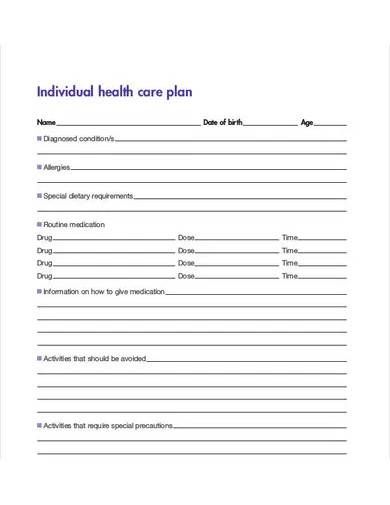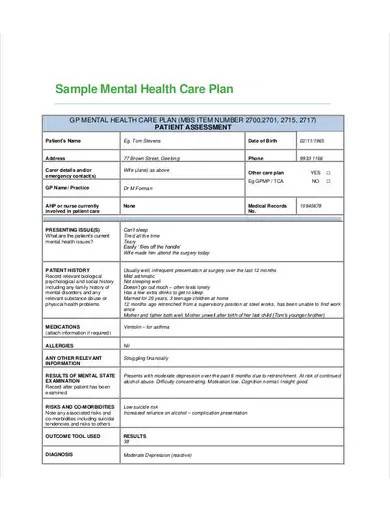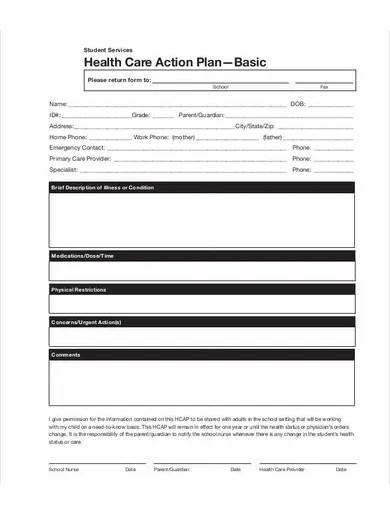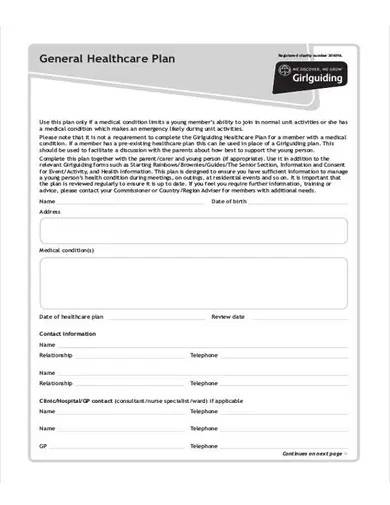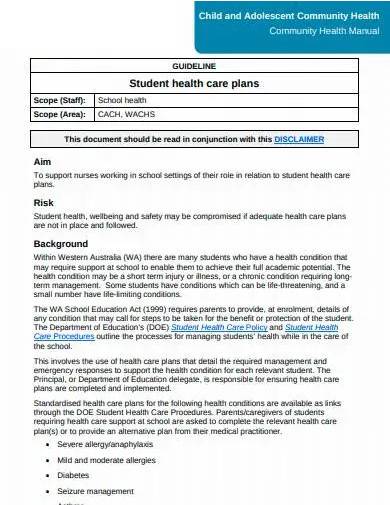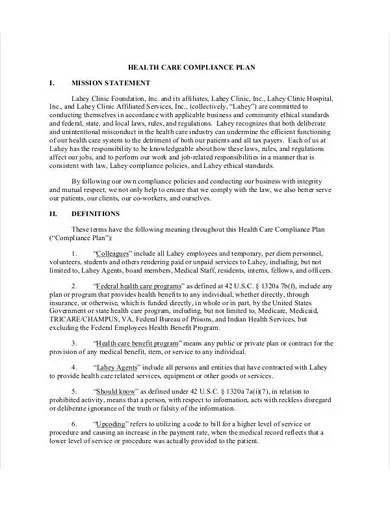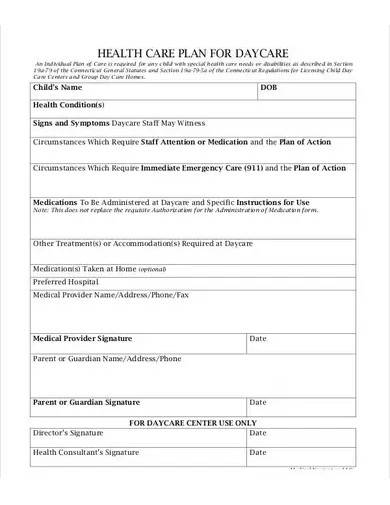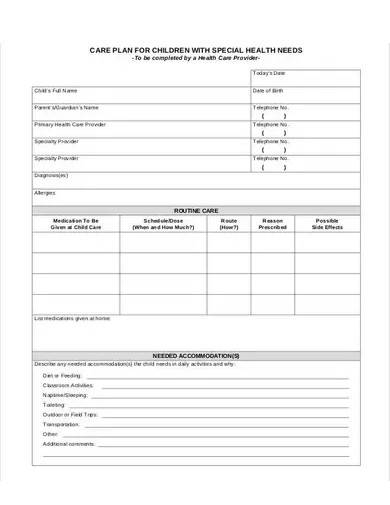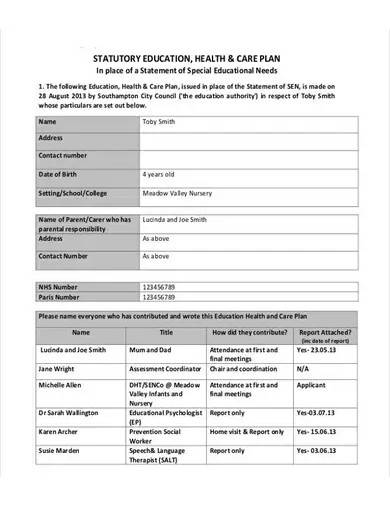Health is a critical priority. In 2019, 91.5% of Americans had healthcare insurance coverage, according to the United States Census Bureau. A good number of individuals dedicate a considerable amount of their energy to become healthy. It’s apparent that the healthcare industry is a necessity. On the business side, it’s also madly profitable when you execute the right plan. A healthcare business plan can help you realize your goals and implement action plans to help you achieve them.
FREE 15+ Healthcare Plan Samples
1. Healthcare Business Plan Template
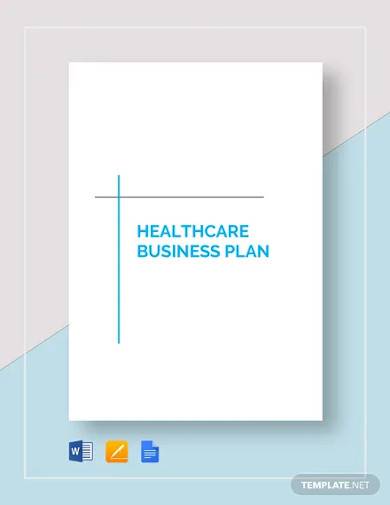
2. Healthcare Marketing Plan Template
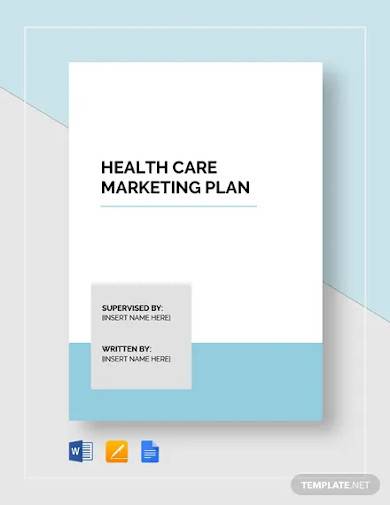
3. Healthcare Strategic Plan Template
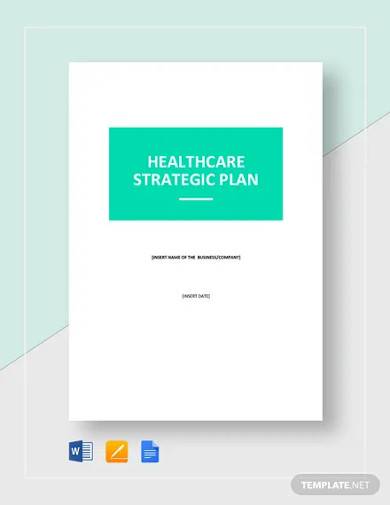
4. Healthcare Operational Plan Template
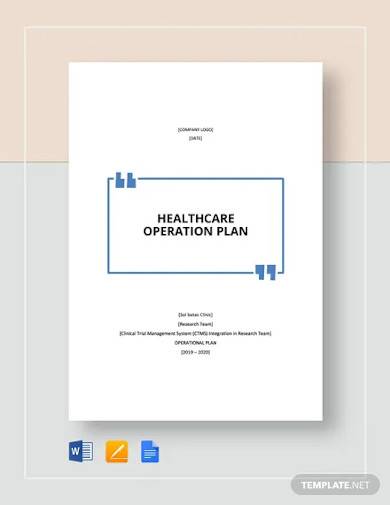
5. Health Care / Social Care Business Plan Template
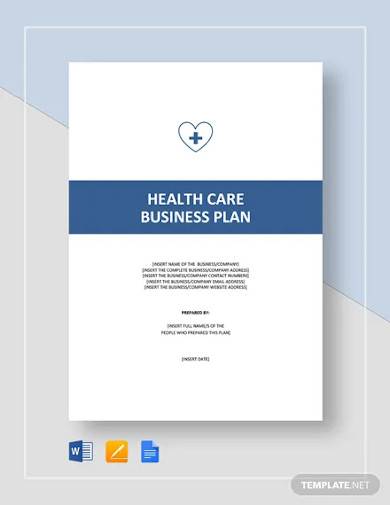
6. Mental Health Care Plan Template
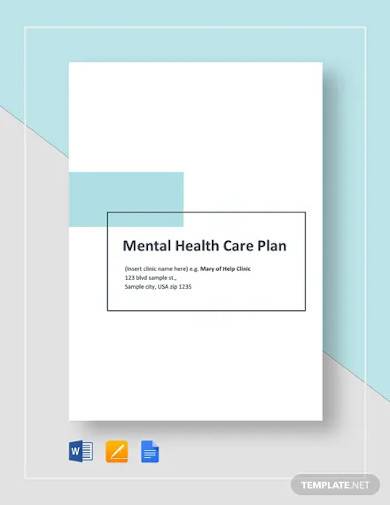
7. Health Care Project Plan Template
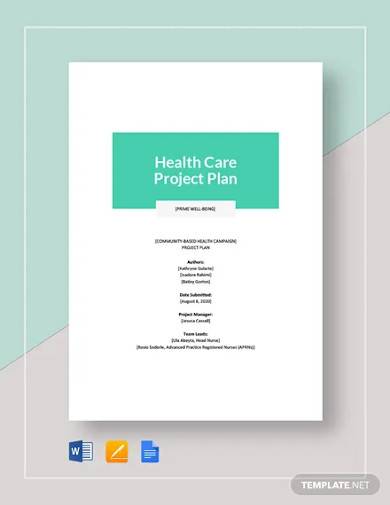
8. Individual Healthcare Plan Template
9. Sample Mental Health Care Plan
10. Basic Health Care Action Plan
11. General Health Care Plan Template
12. Student Health Care Plan
13. Health Care Compliance Plan
14. Health Care Plan for Daycare
15. Child Health Care Plan Template
16. Sample Educational Health Care Plan
What Is a Healthcare Business Plan?
A healthcare business plan provides a comprehensive account of your health or medical company’s business objectives and the components of how you intend to achieve your goals. It provides a complete outline of your business’ operation and structure. In the most basic sense, it contains how your business will work when established. A business plan is every entrepreneur’s first step to making their brand.
The Challenges Facing the Healthcare Industry
As of 2019, the revenue of the healthcare industry stood at $2.4 billion. Almost half of this came from hospitals. The US federal government’s allocation for health reached an estimated $1.2 trillion in the same year. Health is a major concern for the country, as it should be. Wealth is no match for sickness and diseases. The people managing the industry are pulling all ropes to provides the best treatment and services for those who need them, especially in the time where a worldwide pandemic, the coronavirus, is taking a toll on every nation’s economic activity and their citizen’s safety and welfare.
Like any other significant industries, healthcare has its fair share of challenges. If you’re planning to make a healthcare business plan, here are some things that you should account for:
1. Patient information security. In 2017, there were over 350 cyber breaches in the US, which uncovered 4.93 million patient records. The amount of personal data stored in medical facilities makes it a vulnerable spot for cyberattacks.
2. The staggering cost of avoidable medical blunders. Even when you want medical professionals to be as accurate as possible, mistakes are inevitable. Unfortunately, in the healthcare industry, this costs a fortune. According to a research study featured in Elsevier, the misdiagnosis and complication in New South Wales amounted to $262 million from 2011 to 2016.
3. The dearth of price transparency. Most medical services and procedures are unknown until the time you have to face the crippling total on the medical invoice. It’s often the root of confusion among patient’s families and contributes to their challenges of meeting payment responsibilities.
4. Rising medicine costs. It’s no secret that the drug prices have been on the rise. According to Consumer Reports, 30% of Americans saw a price increase in their prescription medicines. Twelve percent of them added that their increase amounted to $100 and more.
How to Make a Healthcare Business Plan
Here are some steps that can help you get started on your healthcare business plan:
1. Define Your Objectives
The first step of any business planning process is to identify your mission and vision. It’s not some fancy statements that you will include in the first parts of your business plan. It will dictate the framework of your business and what objectives you want to achieve. The objectives will provide you with your plan’s general idea before you dive into the details. When you have a goal plan already in mind, it’s now easier to create a plan that will take you there.
2. Provide Product and Services Description
Because the business plan essentially provides the framework of what your business is going to be like, it will never be complete without a complete list of your offered products or services to your patients. It is the part of your business plan where you will place what medical equipments you will use to cater to your patients, the procedures you’re licensed to perform, and the drug prescriptions you have at hand. It generally describes what your operational plan is going to be like. If you want to start small and expand later on, you can include which services you want to start with and update your business plan with more offers later on.
3. Identify Your Market
Even when your goal is to be a source of trusted medical and health welfare for your community, that doesn’t take away the fact that this is business. You have to attract your target audience’s attention and encourage them to step foot on your doors. It is where you do an audience analysis to determine who’s within your market and their needs. Are you setting up a clinic as a family doctor? Are establishing a startup children’s care clinic? It helps you adjust your marketing plan approach to understand what they want from you and how you can provide for them.
4. Have a Solid Financial Plan
Part of planning your business is to ensure that you have enough financial resources to support your operation for the next years. It is where your financial plan becomes crucial to the process. It allows you to examine your expenses, cash flow statements, income statement, and other factors that will help you make informed financial forecasts and determine your profitability and sustainability.
FAQs
What is the comprehensive component of a business plan?
The different components of a business plan are:
- Executive summary
- Company description
- Market and competitive analysis
- Management and organizational plan
- Product and services description
- Marketing plan
- Sales plan
- Financial projection
What are the different variations of business plans?
The different variety of business plans are:
- Standard business plan
- Lean plan
- One-page business plan
- Startup business plan
What characteristics make a good business plan?
The characteristics of a good business plan are:
Specific
- Realistic
- Provides solutions
- Defines responsibilities
- Addresses its market
- Presents priorities
- Continuously updated
An efficient healthcare financial plan will help you get through the industry’s highly competitive market and ensure that you’re equipped to take on its challenges. It also ensures that you have enough resources to keep your operations going by anticipating risks and opportunities you can use to your advantage. Take a look at our healthcare plan templates and get the option that suits your needs the best.
Related Posts
FREE 9+ 30-Day Marketing Plan Samples in PDF | MS Word | Apple Pages | Google Docs
FREE 3+ Sales Team Action Plan Samples in PDF | MS Word | Apple Pages | Google Docs
Marketing Plan For Small Business Samples
FREE 7+ Fashion Business Plan Samples in PDF
FREE 10+ Sprint Planning Samples In MS Word | Google Docs | PDF
FREE 10+ Wedding Planning Samples in MS Word | Apple Pages | Powerpoint | PDF
FREE 9+ Monthly Study Planner Samples in PSD | Illustrator | InDesign | PDF
FREE 9+ Sample Curriculum Planning Templates in PDF | MS Word
FREE 10+ Teacher Development Plan Samples in MS Word | Google Docs | Apple Pages | PDF
FREE 10+ Basketball Practice Plan Samples in PDF
FREE 12+ School Business Plan Samples in PDF | MS Word | Apple Pages | Google Docs
FREE 7+ Client Strategic Plan Samples in PDF | MS Word
FREE 11+ Trucking Business Plan Templates in PDF | MS Word | Google Docs | Pages
FREE 7+ Small Hotel Business Plan Samples PDF | MS Word | Apple Pages | Google Docs
FREE 14+ Bakery Business Plans in MS Word | PDF | Google Docs | Pages

